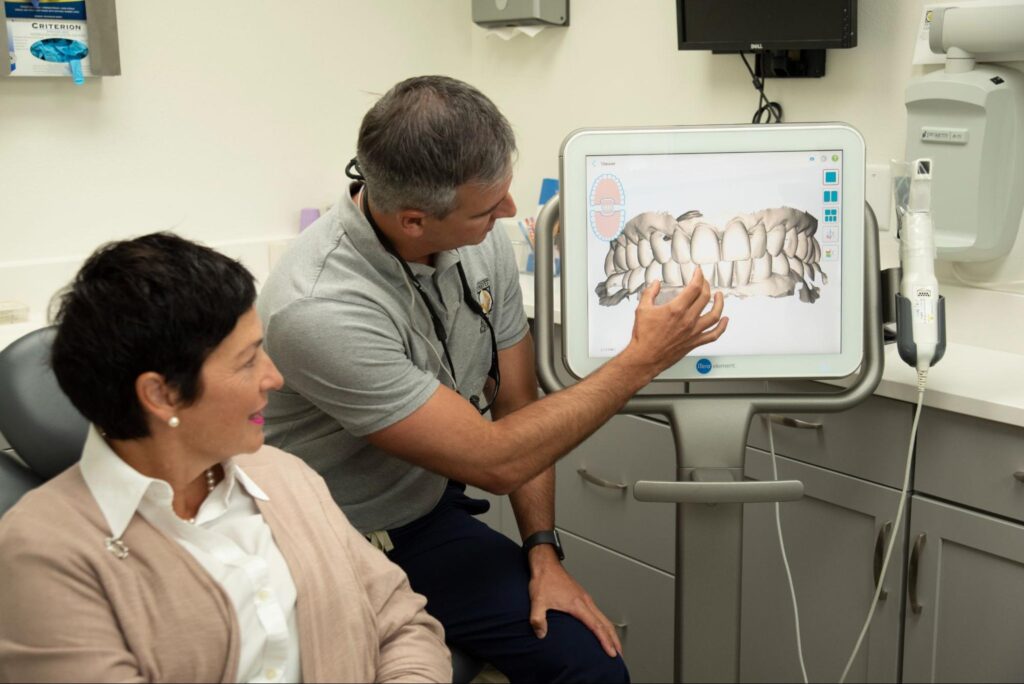In most cases, individuals aim to steer clear of surgical procedures. However, when it comes to surgical extractions in dentistry, it’s crucial to collaborate with a skilled team of professionals to guarantee a smooth procedure and recovery. At Charvet Dental Center, our experts assure you of precisely that and can assist you in addressing the question: What are the reasons for tooth extraction?
Simple vs. Surgical
In dentistry, there are two primary types of extractions: simple and surgical.
A simple extraction is typically more straightforward, as it involves teeth that are visible in the mouth and can be easily grasped with dental instruments.
On the other hand, a surgical extraction is more complex and often involves internal procedures, especially when a tooth isn’t easily accessible. These extractions are performed by dentists such as Dr. Charvet and Dr. Charvet Jr., as well as oral surgeons.
Wisdom Teeth
This is often the most common type of surgical extraction. Wisdom teeth, also known as “third molars,” typically emerge between the ages of 17 and 20. It’s recommended to have them removed during this time frame, especially if they are impacted, meaning they are trapped in the gum tissue or jawbone. Impacted wisdom teeth can increase the risk of complications, making their removal essential.
Here are some of the complications in question:
- Pain resulting from impaction can vary from chronic discomfort to acute episodes, impacting your quality of life significantly.
- Wisdom teeth are prone to infection and gum disease because they are difficult to clean thoroughly, making them more susceptible to bacterial growth.
- The development of cysts and tumors around wisdom teeth is a potential risk, which can cause damage to the jawbone and adjacent teeth. Extraction serves as a preventive measure against these serious issues.
Given the prevalence of wisdom teeth removal, rest assured that our team is well-versed in this procedure, and you have nothing to fear.
Other Reasons for Surgical Extraction
- Severe tooth pain that does not respond to other dental treatments like fillings or root canals may require extraction.
- Extensive decay that cannot be restored may also necessitate extraction.
- Advanced gum disease resulting in tooth mobility and bone loss may require extraction to prevent further complications.
- Orthodontic treatment may occasionally require extraction to ensure proper alignment.
- Broken or fractured teeth below the gumline may need extraction, especially if the remaining structure cannot support further restoration.
- Infections or abscesses may require extraction to eliminate the source of the condition.
What to Expect
In the event that you require a surgical extraction, here is a general overview of the steps involved in the procedure:
- Evaluation/Consultation: Before the extraction, your dentist or oral surgeon will discuss anesthesia options with you. Local anesthesia will numb the extraction area, while sedation options like IV sedation or nitrous oxide can help keep you calm and relaxed during the procedure.
- Anesthesia: There are usually a few choices here: Local anesthesia numbs the area of the extraction, and you’ll remain completely aware of the procedure. The alternative is IV Sedation or Nitrous Oxide, which will leave you drowsy but aware. Again, this will be decided between you and your doctor ahead of time.
- Incision: If necessary, a small incision may be made in the gum tissue near the tooth to access its root structure.
- Tooth Extraction: Specialized instruments are used to carefully loosen the tooth from its socket in the bone. The tooth may be removed in one piece or divided into sections for easier extraction. In some cases, a bone graft may be used to preserve the ridge and reduce bone loss.
- Stitches: Depending on the situation, stitches may be used to close the incision site. These stitches typically dissolve on their own over time.
- Post-Op Care: After the procedure, you’ll receive instructions for caring for the extraction site. This may include guidelines for oral hygiene, dietary restrictions, and using cold compresses to reduce swelling.
- Recovery: Over the next few days, you may experience mild bleeding, swelling, and pain. Pain relievers and anti-inflammatory medications can help manage these symptoms.
Following the procedure, we can schedule a follow-up appointment to monitor the healing progress, assess any remaining recovery time, and remove any non-dissolvable stitches if needed. While complications can occur with any surgery, it’s essential to contact us immediately if you experience any concerning symptoms, such as signs of infection or nerve damage. However, surgical tooth extraction is generally a safe and routine procedure, customized to meet the individual needs of each patient by the Charvet Dental Center team.
Our Team Is Proud to Serve You!
Even if you find yourself in need of a surgical extraction, rest assured that we are committed to providing you with the highest level of care and addressing any concerns you may have. If you suspect that any of the information discussed may pertain to your situation, don’t hesitate to schedule an appointment with us at our Metairie office (504- 834-6504)
 Schedule Now
Schedule Now


